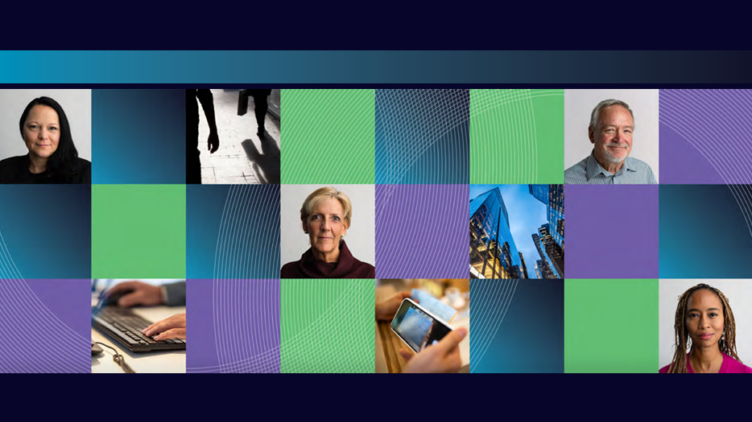Global Financial Crime Report: Criminals took US$3.1 Trillion from Victims in 2023 Per NASDAQ
Tracking the Impact of Financial Crimes on Victims
Author:
• SCARS Editorial Team – Society of Citizens Against Relationship Scams Inc.
About This Article
The 2024 Global Financial Crime Report by Nasdaq reveals that transnational illicit activities, like romance scams and human trafficking, amassed over US$3 trillion, devastating victims’ sense of security and, at times, their lives. Nasdaq Chair and CEO Adena Friedman emphasizes, “The world’s multi-trillion-dollar financial crime epidemic is more than a money problem.”
Victims, like former U.S. Air Force intelligence officer & SCARS Chair Debby Montgomery Johnson, echo the sentiment, emphasizing the profound human costs. The report exposes the staggering impact on individuals, including romance scam losses totaling $3.8 billion in 2023 alone.
Elder fraud, targeting lonely seniors, and human trafficking further exemplify the dire consequences. Victims often suffer in silence, leaving criminals unpunished, highlighting the urgent need for robust anti-financial crime measures.
The Human Toll of Transnational Financial Crime: Unveiling the Devastating Impact on Victims per NASDAQ Report
In a chilling revelation, the 2024 Global Financial Crime Report by Nasdaq sheds light on the staggering toll of transnational illicit activities, ranging from romance scams to human trafficking, which collectively generated over US$3 trillion in 2023. Behind this astronomical figure lies a harrowing reality: the destruction of victims’ sense of security and, in some cases, their very lives.
According to Nasdaq Chair and CEO Adena Friedman, the repercussions of this epidemic extend far beyond monetary losses.
“The world’s multi-trillion-dollar financial crime epidemic is more than a money problem,” Friedman asserts. “It has profound human costs from despicable crimes that have a deep and lasting impact on the communities we serve.”
The Nasdaq Financial Crime report unveils the pervasive nature of financial crime, with illicit cash flows feeding into a web of other criminal enterprises. From drug trafficking to human exploitation, the reach of these activities knows no bounds and affects victims everywhere. In 2023 alone, an estimated $782.9 billion was generated by transnational drug trafficking, $346.7 billion from human trafficking, and $485.6 billion from various forms of fraud from fraud & scam victims, Nasdaq reveals.
However, quantifying the total cost of financial crime proves challenging, as many instances go unreported due to victims’ feelings of shame or helplessness. The reported $3.1 trillion figure merely scratches the surface, hinting at a much higher reality lurking beneath.
But it’s not just the victims who bear the burden; society as a whole pays the price according to the Nasdaq report. The average person becomes unwittingly entangled in this web of deceit, either as direct victims or through indirect costs like increased business fees and government taxes.
To humanize the stark statistics, Nasdaq’s report includes real-world stories of victims, ranging from military officers to Google sales representatives. These narratives serve as a poignant reminder that anyone can fall prey to financial crime, regardless of their background or profession.
“People always think it could never happen to them—I know I did, and I’m a former [U.S. Air Force] intelligence officer and SCARS Chairwoman,” says Debby Montgomery Johnson, reflecting on her own experience as a victim. “If it can happen to me, it can happen to anyone.”
One of the most prevalent forms of fraud or scams highlighted in the report is romance scams, which saw scam victims suffer an estimated $3.8 billion in losses in 2023 alone. Exploiting emotional vulnerabilities, fraudsters manipulate victims until they have nothing left to give, leaving behind a trail of heartbreak and financial ruin.
But romance scams are just the tip of the iceberg per Nasdaq. Elder fraud, targeting vulnerable seniors, and human trafficking are also rampant, with devastating consequences. In 2023, one in ten elderly Americans fell victim to fraud, resulting in a combined loss of $77.7 billion. Meanwhile, traffickers generated a staggering $346.7 billion worldwide through modern slavery practices.
To combat these nefarious activities, financial institutions are ramping up their efforts to detect and prevent money laundering. With reported losses of $442 billion to payment fraud in 2023, banks have a personal stake in safeguarding their institutions from criminal activity.
As the battle against financial crime intensifies, it’s crucial to remember the human faces behind the statistics. Each victim represents a life shattered and a future stolen—a stark reminder of the urgent need for collective action to protect the vulnerable and hold perpetrators accountable.
Global Financial Crime Report 2024
Insights at the Intersection of Financial Crime Data & Real Survivor Stories
-/ 30 /-
What do you think about this?
Please share your thoughts in a comment below!
More Related Information:
- 2024-Global-Financial-Crime-Report-Nasdaq-Verafin-20240119.pdf
- New York State Goes After Citibank For Failing To Protect & Refund To Scam Victims – January 2024 (scamsnow.com)
- UNODC Report on Casinos and Cryptocurrency Scams and Money Laundering 2024 (scamsnow.com)
- Chinese Money Laundering Organizations (CMLOs) – Use of Counterfeit Chinese Passports – 2024 (scamsnow.com)
- Fraud & Scams Are So Big We Need To Teach It In Schools – 2024 (scamsnow.com)
- INTERPOL Operation HAECHI IV – Over 3,500 Successful Arrests – Expanded Details – 2023 (scamsnow.com)
-/ 30 /-
What do you think about this?
Please share your thoughts in a comment below!
SCARS LINKS: AgainstScams.org RomanceScamsNOW.com ContraEstafas.org ScammerPhotos.com Anyscam.com ScamsNOW.com
reporting.AgainstScams.org support.AgainstScams.org membership.AgainstScams.org donate.AgainstScams.org shop.AgainstScams.org
youtube.AgainstScams.org linkedin.AgainstScams.org facebook.AgainstScams.org
Important Information for New Scam Victims
- Please visit www.ScamVictimsSupport.org – a SCARS Website for New Scam Victims & Sextortion Victims.
- SCARS Institute now offers its free, safe, and private Scam Survivor’s Support Community at www.SCARScommunity.org – this is not on a social media platform, it is our own safe & secure platform created by the SCARS Institute especially for scam victims & survivors.
- SCARS Institute now offers a free recovery learning program at www.SCARSeducation.org.
- Please visit www.ScamPsychology.org – to more fully understand the psychological concepts involved in scams and scam victim recovery.
If you are looking for local trauma counselors, please visit counseling.AgainstScams.org
If you need to speak with someone now, you can dial 988 or find phone numbers for crisis hotlines all around the world here: www.opencounseling.com/suicide-hotlines
Statement About Victim Blaming
Some of our articles discuss various aspects of victims. This is both about better understanding victims (the science of victimology) and their behaviors and psychology. This helps us to educate victims/survivors about why these crimes happened and not to blame themselves, better develop recovery programs, and help victims avoid scams in the future. At times, this may sound like blaming the victim, but it does not blame scam victims; we are simply explaining the hows and whys of the experience victims have.
These articles, about the Psychology of Scams or Victim Psychology – meaning that all humans have psychological or cognitive characteristics in common that can either be exploited or work against us – help us all to understand the unique challenges victims face before, during, and after scams, fraud, or cybercrimes. These sometimes talk about some of the vulnerabilities the scammers exploit. Victims rarely have control of them or are even aware of them, until something like a scam happens, and then they can learn how their mind works and how to overcome these mechanisms.
Articles like these help victims and others understand these processes and how to help prevent them from being exploited again or to help them recover more easily by understanding their post-scam behaviors. Learn more about the Psychology of Scams at www.ScamPsychology.org
SCARS INSTITUTE RESOURCES:
If You Have Been Victimized By A Scam Or Cybercrime
♦ If you are a victim of scams, go to www.ScamVictimsSupport.org for real knowledge and help
♦ SCARS Institute now offers its free, safe, and private Scam Survivor’s Support Community at www.SCARScommunity.org/register – this is not on a social media platform, it is our own safe & secure platform created by the SCARS Institute especially for scam victims & survivors.
♦ Enroll in SCARS Scam Survivor’s School now at www.SCARSeducation.org
♦ To report criminals, visit https://reporting.AgainstScams.org – we will NEVER give your data to money recovery companies like some do!
♦ Follow us and find our podcasts, webinars, and helpful videos on YouTube: https://www.youtube.com/@RomancescamsNowcom
♦ Learn about the Psychology of Scams at www.ScamPsychology.org
♦ Dig deeper into the reality of scams, fraud, and cybercrime at www.ScamsNOW.com and www.RomanceScamsNOW.com
♦ Scam Survivor’s Stories: www.ScamSurvivorStories.org
♦ For Scam Victim Advocates visit www.ScamVictimsAdvocates.org
♦ See more scammer photos on www.ScammerPhotos.com
You can also find the SCARS Institute’s knowledge and information on Facebook, Instagram, X, LinkedIn, and TruthSocial
Psychology Disclaimer:
All articles about psychology and the human brain on this website are for information & education only
The information provided in this and other SCARS articles are intended for educational and self-help purposes only and should not be construed as a substitute for professional therapy or counseling.
Note about Mindfulness: Mindfulness practices have the potential to create psychological distress for some individuals. Please consult a mental health professional or experienced meditation instructor for guidance should you encounter difficulties.
While any self-help techniques outlined herein may be beneficial for scam victims seeking to recover from their experience and move towards recovery, it is important to consult with a qualified mental health professional before initiating any course of action. Each individual’s experience and needs are unique, and what works for one person may not be suitable for another.
Additionally, any approach may not be appropriate for individuals with certain pre-existing mental health conditions or trauma histories. It is advisable to seek guidance from a licensed therapist or counselor who can provide personalized support, guidance, and treatment tailored to your specific needs.
If you are experiencing significant distress or emotional difficulties related to a scam or other traumatic event, please consult your doctor or mental health provider for appropriate care and support.
Also read our SCARS Institute Statement about Professional Care for Scam Victims – click here
If you are in crisis, feeling desperate, or in despair, please call 988 or your local crisis hotline – international numbers here.
More ScamsNOW.com Articles
A Question of Trust
At the SCARS Institute, we invite you to do your own research on the topics we speak about and publish. Our team investigates the subject being discussed, especially when it comes to understanding the scam victims-survivors’ experience. You can do Google searches, but in many cases, you will have to wade through scientific papers and studies. However, remember that biases and perspectives matter and influence the outcome. Regardless, we encourage you to explore these topics as thoroughly as you can for your own awareness.















![NavyLogo@4x-81[1] NASDAQ Global Financial Crime Report: Criminals Took US$3.1 Trillion from Victims and the Economy in 2023](https://scamsnow.com/wp-content/uploads/2025/04/NavyLogo@4x-811.png)









![scars-institute[1] NASDAQ Global Financial Crime Report: Criminals Took US$3.1 Trillion from Victims and the Economy in 2023](https://scamsnow.com/wp-content/uploads/2025/04/scars-institute1.png)

![niprc1.png1_-150×1501-1[1] NASDAQ Global Financial Crime Report: Criminals Took US$3.1 Trillion from Victims and the Economy in 2023](https://scamsnow.com/wp-content/uploads/2025/04/niprc1.png1_-150x1501-11.webp)